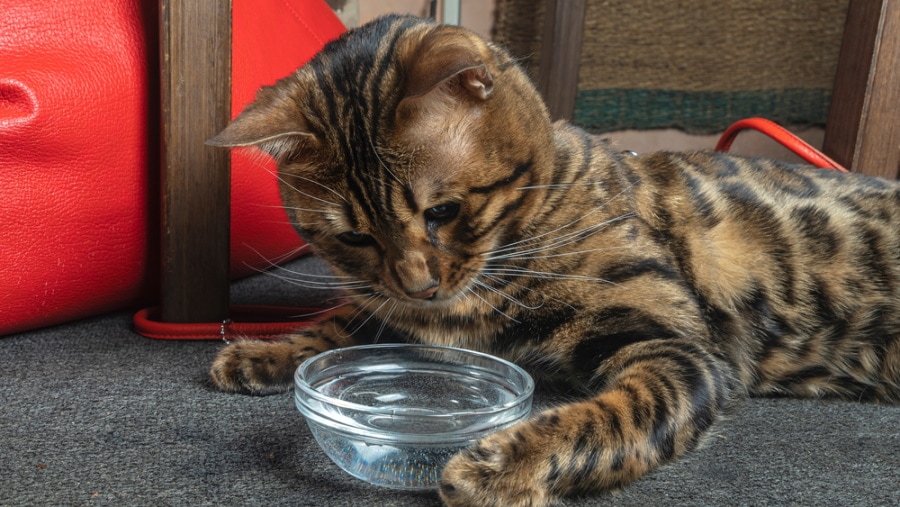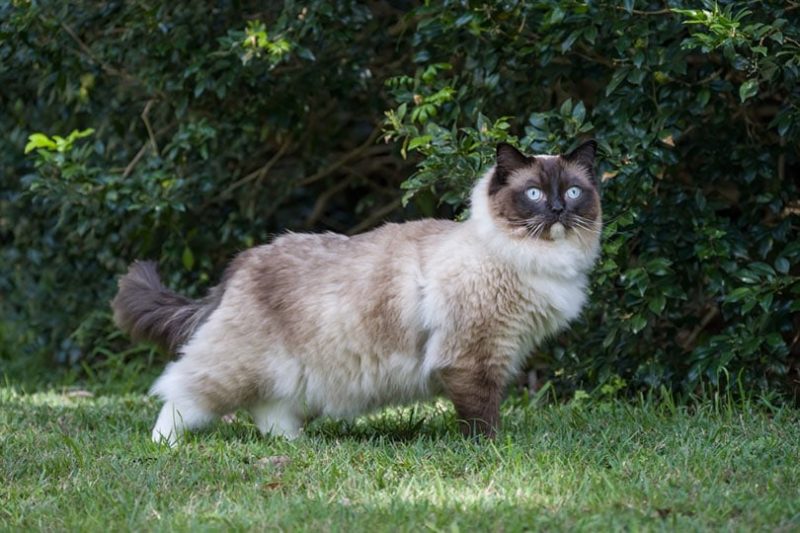Why Is My Cat Suddenly Sleeping in Weird Places? 4 Possible Reasons
By Ashley Bates
Updated on
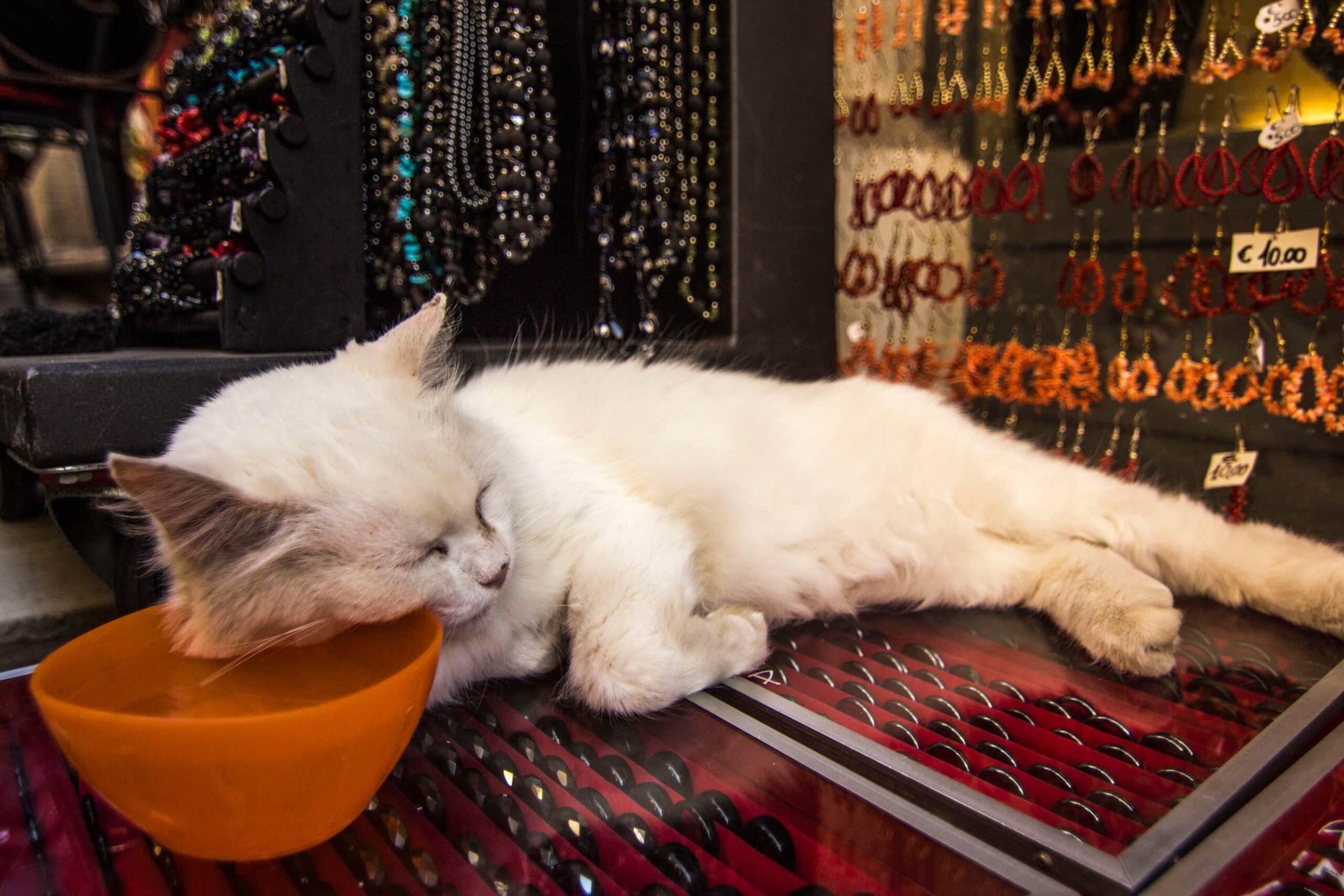
Our cats are peculiar creatures that are always keeping us on our toes. Every time you turn around, your cat is doing something unusual that makes you raise your eyebrows. If you’ve noticed lately that your cat is starting to take naps in spots they have never touched in the home, you might wonder what is happening.
Typically this is not a cause for concern, but sometimes it can point to health issues or anxiety. Let’s understand the difference.
 The 4 Possible Reasons Your Cat Is Suddenly Sleeping in Odd Places
The 4 Possible Reasons Your Cat Is Suddenly Sleeping in Odd Places
Let’s get down to brass tacks. There are only a handful of reasons why your cat might be sleeping in another spot. We’ll go over the easy ones first and then explain when there could be an actual problem that causes concern.
1. Instinct
In nature, cats tend to be quite nomadic, not staying in the same place for long. It protects them from potential predators and helps them move on to territories with no prey. So even though your lazy, spoiled house cat is far from the nature intended for them, it might simply be that instinct.
If your cat has never done this before and everything is new, you might think it’s concerning. But it could just be a natural part of their process once they start opening up to exploring new parts of the house.
We don’t want you to chalk this up to instinct if you feel like there’s an underlying cause that could be more serious or sinister than that. We just want to confirm that this can be a perfectly normal part of your cat’s existence.
Multiple sources could trigger it. After all, maybe they figured out that the window in the kitchen has the best view of the birds at the feeders. Or perhaps they are getting annoyed by children or other pets in the household and want to be away from everyone.
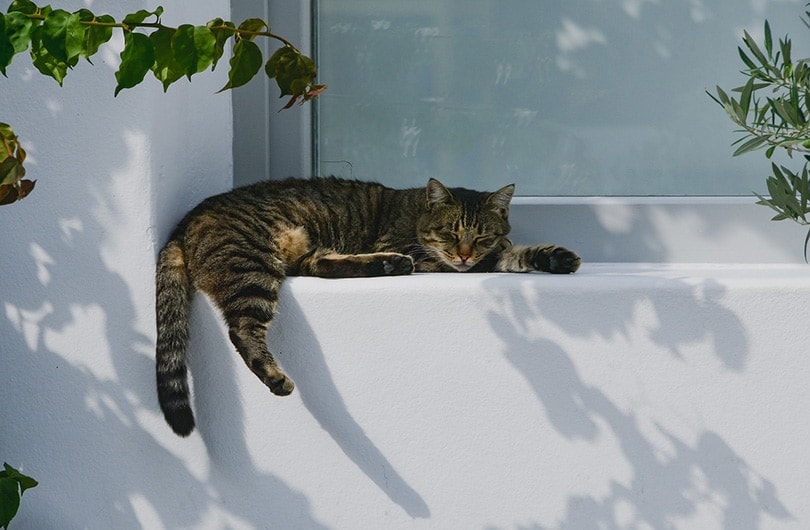
2. Stress
If there have been any changes in your cat’s environment, it can definitely trigger this response, no matter how small that change might be. But what seems like no big deal to us can actually throw off our pets, impacting them in ways that we wouldn’t foresee.
If you think back, has anything shifted in the home, such as a new family member, moving a residence, getting a new pet, or even moving the furniture? When you change your cat’s daily environment, it can create a behavioral shift as well.
They might not fully understand what is happening or how to cope. So you might notice peculiar behaviors like suddenly sleeping in the sink or another unusual part of the home.
Pet parents with anxious kitties know the pain of watching their companions be uncomfortable—that’s where the Hepper Nest Bed comes in. Our product is designed with nervous pets in mind. The bowl shape with high rounded sides comforts your cat to make them feel safe and secure, while the self-warming, sherpa fleece insert and flexible molded foam ensure that they stay as cozy as possible. Learn more about how the Next can calm your anxious pet here.
3. Boredom
Your cat is wandering through the same boring hallways every day. They sleep in the same spots, do the same routine, you name it. If they’ve just been getting a little tired of the same old, they might move their napping spot just to spice things up a little.
This can also be chalked up to a “just because” mentality. Your cat exists in the home. Why not just start sleeping in random places?
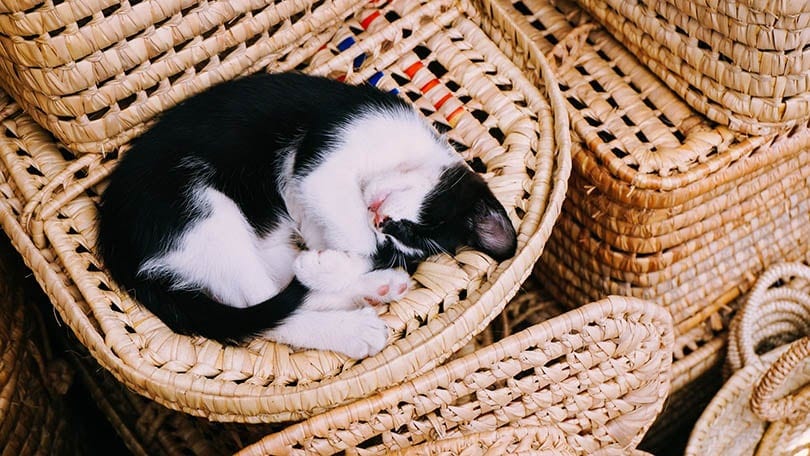
4. Illness
Sometimes changes in routine can signal a possible illness. So if this behavior is sudden, you should look for other signs that maybe your cat just isn’t feeling very well. It might be hard to detect at first, but once you connect the dots, it all makes more sense.
Ultimately your veterinarian can perform a routine check to see what might be happening in your cat’s system, if anything. Even if you’re not 100% certain that it is health-related, sometimes covering your bases can give you a layer of reassurance.
This is not a one-size-fits-all scenario, but specific symptoms indicate general unwellness. Some of these include lackluster hair, lethargy, lack of appetite, seeking solitude, and lack of regular play.
No matter what other symptoms your cat might be showing, it’s important to note them so you can tell your vet about any changes. Even something seemingly insignificant might point your vet in the right direction.
Other Things to Consider
The next causes we’re going to mention shouldn’t cause much distress, and each comes from a momentary change. It’s not something that should progressively get worse, and it’s usually easily identifiable.
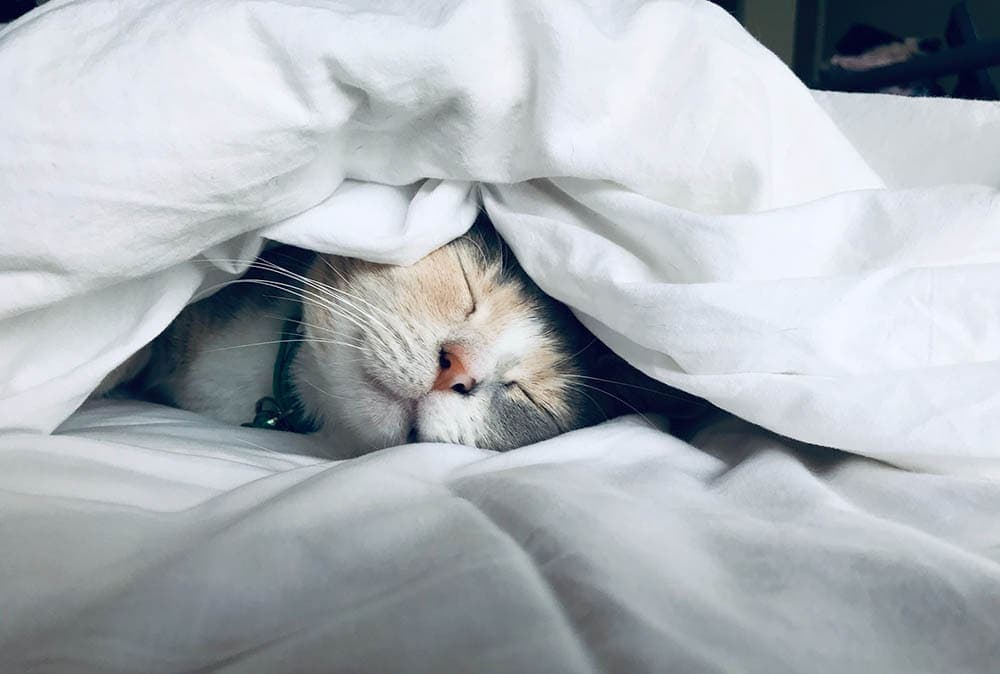
Temperature
If your cat gets chilly easily, you might notice them by a vent or warmer part of the house where they can get roasty-toasty. Some cats might stay out of their once-beloved windows during winter because it’s just too cold.
On the other hand, if you have a long-haired cat like a Maine Coon, you might notice them gravitating more toward the cooler areas of the house in colder months.
Comfort
Some kitties love to be cozy. They recently discovered that a laundry basket is full of fluff and goodness. You might see them nestled inside or up against a new blanket. These things are completely expected. If a cat finds something interesting, you can bet it’ll nap on it.
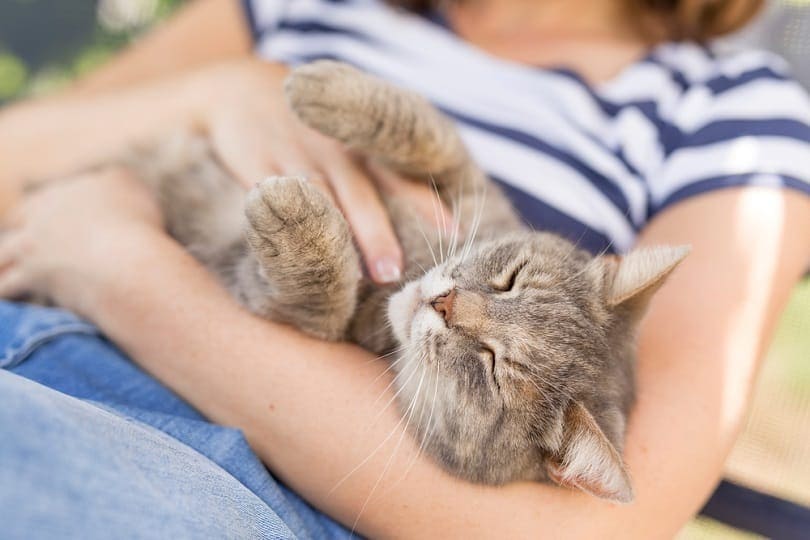
Smells
If you’ve recently been seeing a new group of people or visited a family member’s house and they also have pets, it could be smell-related. They might smell something on your clothes or other fabric around the home and decide that they want to get close to it.
Or the opposite; they might smell another animal or an unfamiliar scent on something that they previously loved and now have rejected the spot.
 The Bottom Line
The Bottom Line
Your cat suddenly sleeping in a new and odd place should not raise too many eyebrows right off the bat. But, if you notice any other sudden behavioral changes, it might be worth taking them to the vet just to cover your bases.
Sometimes cats can conceal illness pretty well, so if you suspect any change whatsoever, your vet can run tests as needed. Otherwise, embrace your cat’s weirdness, whether their new napping spot is on top of the fridge, a pile of shoes, or right next to a vent.
Featured Image Credit: Pi_Kei, Shutterstock
 The 4 Possible Reasons Your Cat Is Suddenly Sleeping in Odd Places
The 4 Possible Reasons Your Cat Is Suddenly Sleeping in Odd Places

